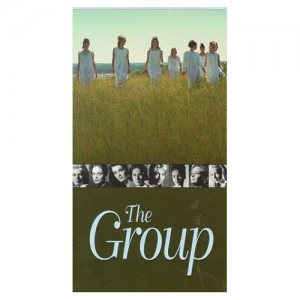The Group: vertical social capital, and choice
I’ve just finished Mary McCarthy’s remarkable 1960s novel. The group is one of Vassar graduates, so they are at the elite end of educated women, and they are closely bonded; they celebrate each other’s weddings, and offer support of a kind to each other on relationship and marriage issues. I picked it up thinking it might illustrate Paula Principle Factor 4 – that women lack the vertical networks to enable them to progress in their careers as fast as they might.
McCarthy offers us a colourful palette of characters, from independent (Polly) to submissive (Kay), baby-focussed (Priss) to lesbian (Lakey), and so on. They are introduced to us at Kay’s marriage to Harald, the aspirant playwright who turns out to be a drunken philanderer. They all intend to work, mostly in publishing, teaching or medicine. “The worst fate, they utterly agreed, would be to become like Mother and Dad, stuffy and frightened. Not one of them, if she could help it, was going to marry a broker or a cold-fish corporation lawyer, like so many of Mother’s generation. They would rather be wildly poor and live on salmon wiggle [?is what? ed.] than be forced to marry one of those dull purplish young men of their own set, with a seat on the Exchange and bloodshot eyes, interested only in squash and cockfighting and drinking at the Racquet Club with his cronies.”
You can see from this that McCarthy doesn’t pull her punches, in style or in what she chooses to observe. The next scene gives us a detailed description of Dottie losing her virginity to the heartless Dick. The dominant recurrent theme in the book is the inequality of power in personal relations,epitomised by the way Sloan, a pediatrician, dictates rigidly to Priss the way she should breastfeed her baby. It’s a powerful message, but I never felt preached at – the individual stories are too well sketched and McCarthy’s eye for detail and sardonic wit too strong for that. But I can very easily imagine the impact it must have made at the time (it was two years on New York Times bestseller list).
I didn’t really find the illustration of vertical social capital I was looking for. But there are some cracking vignettes of women and work. Here is Libby’s boss, the not-unsympathetic Mr Leroy, giving her an indication of what she should expect:
“That’s another thing Miss McAusland….Publishing is a man’s business…Name me a woman, outside of Blanche Knopf, who married Alfred, who’s come to the top in book publishing. You find them on the fringes, in publicity and advertising. Or you find them copy editing or reading proof. Old maids mostly, with a pencil behind their ear and dyspepsia. We’ve got a crackerjack here, Miss Chamberes, who’s been with us twenty years. I think she was Vassar too. Or maybe Bryn Mawr. Vinegary type, with a long thin nose that looks as if it ought to have a drop on the end of it, a buttoned-up sweater, metal-rimmed glasses; a very smart, decent, underpaid, fine woman. Our galley-slave, pardon the pun. No. Publishing’s a man’s business, unless you marry into it.”
My edition has an introduction by Candace Bushnell, author of Sex and the City. Her take on the book is interesting, but leaves me a bit uncertain where she ends up. “Although every generation of women likes to claim ownership of a ‘new’ set of problems that come with being a contemporary woman, The Group reminds us that not much has really changed. Sex before marriage, lousy men, career versus family – they’re all here. Indeed, in reading the novel, one might wonder if the greatest difference between the women of today and the women of seventy years ago may simply be the word ‘ choices’ – a word that lulls us into thinking we have some degree of control over our lives, into thinking, even that we have solvedthe problem that has no name.’ In The Group, McCarthy’s characters have no such out.”
I’m not sure whether Bushnell believes that women now have greater choice – PP factor 5 – or that that’s a delusion. I certainly share her admiration for the book.

